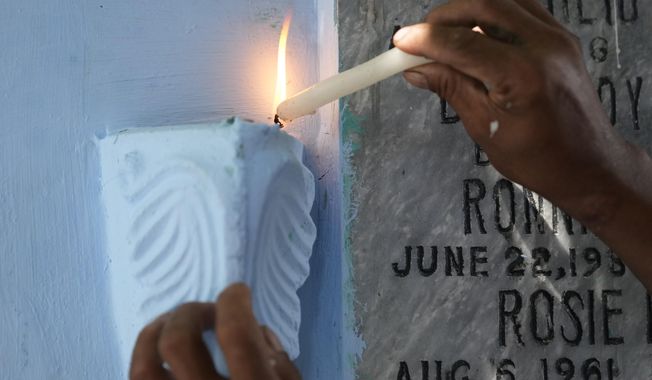
FILE - In this Sept. 3, 2017, file photo, Earthquake and Volcano of the Korea Monitoring Division Director Ryoo Yong-gyu speaks to the media about North Korea's artificial earthquake with a map of the Korean peninsular in Seoul, South Korea. A study by Chinese geologists shows the mountain above North Korea's main nuclear test site has collapsed under the stress of the explosions, rendering it unsafe for further testing and necessitating monitoring for any leaking radiation. The findings by the scientists at the University of Science and Technology of China may shed new light on North Korean President Kim Jong Un's announcement that his country was ceasing its testing program.(AP Photo/Lee Jin-man, File)
Featured Photo Galleries


Trump Transition: Here are the people Trump has picked for key positions so far
President-elect Donald Trump has announced a flurry of picks for his incoming administration. Get full coverage of the Trump transition from The Washingon Times.

Trump dances onstage, takes post-election nation by storm
President-elect Trump dances onstage











